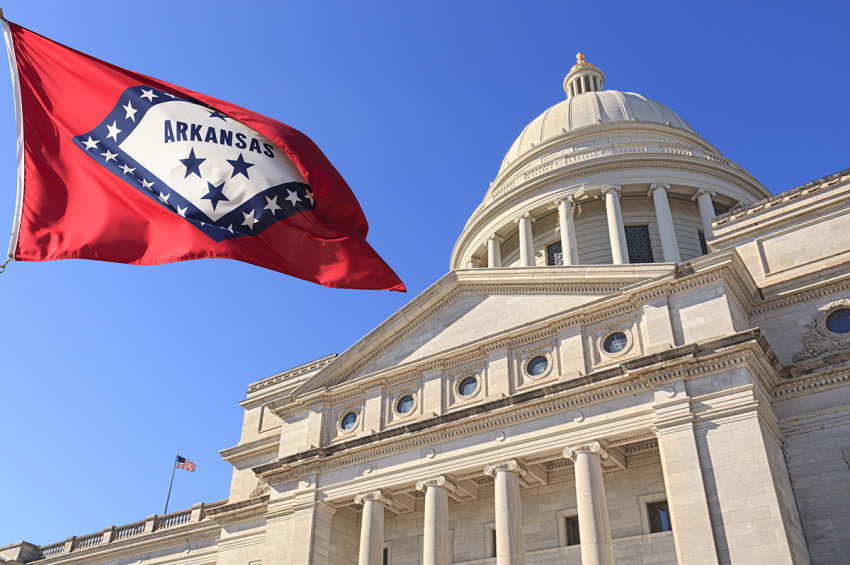Judge blocks Arkansas law banning puberty blockers, cross-sex hormones and gender surgery for kids

A federal judge has temporarily blocked an Arkansas law banning the use of experimental drugs and gender-transition surgeries on minors, which was set to take effect next week in the state.
The law, called the Save Adolescents from Experimentation (SAFE) Act, was adopted earlier this year in the southern state after lawmakers overrode Gov. Asa Hutchinson's veto of the bill. Hutchinson, a Republican, said in April that the measure was “extreme” and “overbroad” and that it could not be defended on limited government grounds. The law was scheduled to be enacted on July 28.
Led by Alabama Attorney General Steve Marshall, he and Republican attorneys general of 17 states — Alaska, Arizona, Georgia, Idaho, Indiana, Kansas, Kentucky, Louisiana, Mississippi, Missouri, Montana, Nebraska, South Carolina, South Dakota, Tennessee, and Texas — filed an amicus brief in federal court last Tuesday in support of the Arkansas law.
Wednesday's judicial injunction against the law comes as four trans-identifying young people, two doctors, and the American Civil Liberties Union came together to file a lawsuit against the state, arguing that the statute violates their constitutional rights. The judge said that their motions could indeed be successful at trial.
“To pull this care midstream from these patients, or minors, would cause irreparable harm,” U.S. District Judge Jay Moody, who issued the ruling, said in a statement.
Praising the decision, Holly Dickson, the executive director of the Arkansas chapter of the ACLU, said the ruling sends a message to other states that her organization will not allow the medicalized gender transitioning of children to be taken away from youth.
Arkansas Attorney General Leslie Rutledge, a Republican, intends to appeal the ruling, promising to defend the law.
“I will not sit idly by while radical groups such as the ACLU use our children as pawns for their own social agenda,” she said.
Likewise, family advocates in favor of the law said they believe the truth about the nature of these contested medical practices and procedures will eventually win out.
"We are disappointed but not surprised that a judge has placed a temporary hold on the Arkansas law that protects children from unscientific, experimental, and destructive gender transition procedures. However, we are confident that ultimately state lawmakers will remain free to protect the health and safety of children,” said Tony Perkins, president of the Washington-based Family Research Council, in a statement emailed to The Christian Post.
"The legal challenge to this law is being mounted by a political movement that advocates for using off-label drugs and experimental procedures on minors. Yet a growing number of individuals are coming forward to share their stories of being permanently disfigured and/or sterilized from procedures such as puberty-blocking drugs, cross-sex hormones, and irreversible surgeries. The truth about the dangers of these life-altering procedures cannot be ignored," he said.
The intensifying legal disputes in the United States regarding the medicalization of gender, especially as it pertains to minors, comes as European nations are moving away from the experimental practices.
Late last year, the High Court of Justice in the United Kingdom ruled in a judicial review that children younger than 16 are unlikely to be mature enough to consent to taking irreversible chemical puberty-blocking drugs given the significant risks and repercussions to their health. The ruling is presently being appealed, and a subsequent decision in March held that parents could give consent on behalf of their minor children.
Earlier this year in Sweden, the prominent Karolinska Hospital said that as of April 1, puberty blockers would no longer be given to youth younger than 16, and their statement referenced the U.K. ruling as part of their rationale.
In June of last year, health authorities in Finland revised their professional guidelines by prioritizing psychological help and support over experimental medicine, especially for young people whose gender dysphoria came about after puberty.
Send news tips to: brandon.showalter@christianpost.com Listen to Brandon Showalter's Life in the Kingdom podcast at The Christian Post and edifi app Follow Brandon Showalter on Facebook: BrandonMarkShowalter Follow on Twitter: @BrandonMShow



























